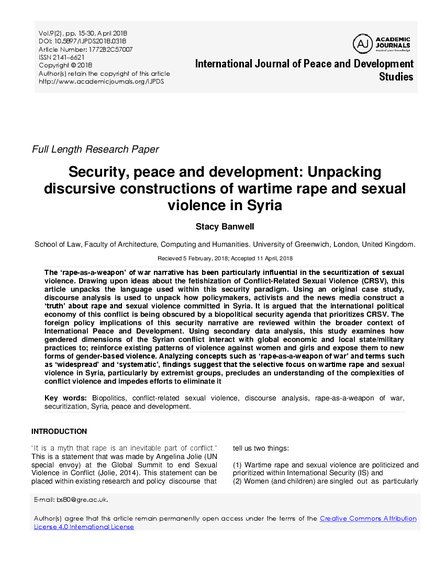
The ‘rape-as-a-weapon’ of war narrative has been particularly influential in the securitization of sexual violence. Drawing upon ideas about the fetishization of Conflict-Related Sexual Violence (CRSV) (Meger 2016a, 2016b), this article unpacks the language used within this security paradigm. Using an original case study, discourse analysis is used to unpack how policymakers, activists and the news media construct a ‘truth’ about rape and sexual violence committed in Syria. It is argued that the international political economy of this conflict is being obscured by a biopolitical security agenda that prioritizes CRSV. The foreign policy implications of this security narrative are reviewed within the broader context of International Peace and Development. Using secondary data analysis, this study examines how gendered dimensions of the Syrian conflict interact with global economic and local state/military practices to:
- reinforce existing patterns of violence against women and girls and
- expose them to new forms of Gender-based Violence.
Analyzing concepts such as ‘rape-as-a-weapon of war’ and terms such as ‘widespread’ and ‘systematic’, findings suggest that the selective focus on wartime rape and sexual violence in Syria, particularly by extremist groups, precludes an understanding of the complexities of conflict violence and impedes efforts to eliminate it.